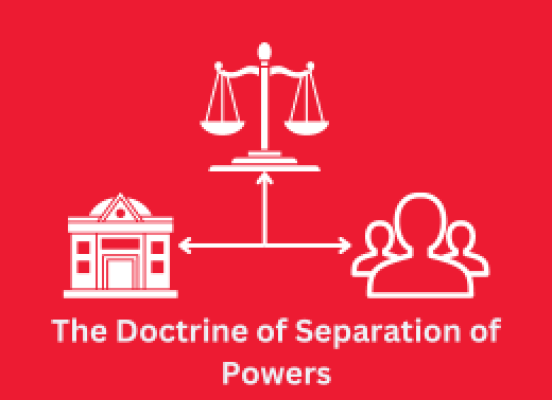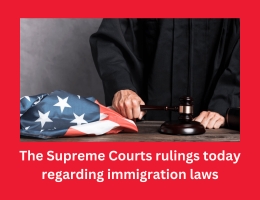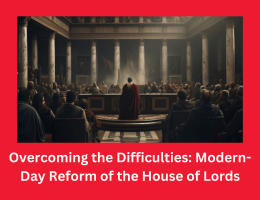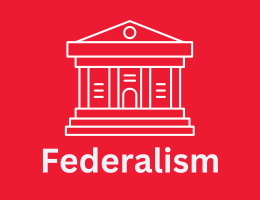
The Doctrine of Separation of Powers: Safeguarding Democratic Governance Through Checks and Balances
- By admin --
- Thursday, 07 Mar, 2024
Many countries, including the U.S. including the constitution has overshadowed the separation of powers which is the basis of democratic government This idea, expressed in specific ways with the help of political theorists including Locke, Rousseau and Montesquieu, represents that it should governmental powers shall be distributed throughout firm divisions instrument to provide and prevent coercion and abuse.
The Constitution of the United States of America upholds the principle of the separation of powers by assigning exceptional responsibilities and powers to the legislative, executive, and judicial departments of government. Each department is given specific responsibilities and amazing authority, which creates a system of mutual reliance and limitation that upholds individual liberty and encourages accountability.
The legislative branch, embodied by means of the Congress, holds the primary responsibility for making legal guidelines and representing the hobbies of the human beings. Article I of the Constitution vests Congress with the authority to enact law, levy taxes, declare struggle, and oversee the federal price range. Through its two chambers, the Senate and the House of Representatives, Congress serves because the major discussion board for taking into consideration and enacting public policy, thereby reflecting the desire of the electorate.
The President uses Congress to assist a government department in reducing its responsibility for enforcing and overseeing abuse of law. Article II of the Constitution gives the president sweeping powers to enforce federal legislative guidelines, lead the defense forces, enter into treaties, and direct federal projectsThe President uses Congress to assist a government department in reducing its responsibility for enforcing and overseeing abuse of law. Article II of the Constitution gives the president sweeping powers to enforce federal legislative guidelines, lead the defense forces, enter into treaties, and direct federal projects.
The judicial branch, embodied by way of the federal courts, together with the Supreme Court, is tasked with decoding and making use of the regulation according with the Constitution. Article III establishes the judicial branch and vests the federal courts with the authority to adjudicate disputes, clear up criminal controversies, and evaluation the constitutionality of laws and governmental movements. Through the doctrine of judicial evaluation, the courts serve as guardians of constitutional rights, ensuring that governmental actions observe the ideas of the Constitution.
The concept of tests and balances, which functions as a system of reciprocal supervision and reticence for the majority of the presidential branches, is essential to the theory of separation of powers.Every department is given specific authority that functions as a check on the authority of the other branches. This keeps any one department from gaining too much power and violating people's rights.
Congress, for instance, exercises physical control over the government department through procedures including affirmation hearings, impeachment, and the power of the purse. Similarly, the President has the power to check and balance government directives and use his veto power to examine the legislative branch. Additionally, thru judicial assessment, the court docket acts as a take a look at and balance for the executive and legislative elements of the presidency, making sure that expert conduct and bribes follow the Constitution.
Through the device of tests and balances, the separation of powers upholds democratic management, encourages responsibility, and safeguards character liberty. The department of powers lets in you to save power in any unmarried entity via dispensing authority many of the several departments of presidency and retaining each department accountable, which lowers the opportunity of tyranny and abuse.
However, there are concerns and problems with the concept of power sharing. Differences and disagreements arise from time to time from interactions between branches of the presidency as each seeks to assert its authority as well as its dreams Furthermore, a modern administrative state—through government bodies and legislatures that increasingly represent it—has raised questions about energy efficiency distribution.
Ultimately, the idea of separation of powers is a fundamental element of democratic administration, setting up the concept that the department of governmental government throughout numerous elements is essential to save you the growth of unbridled electricity. The USA Constitution pursuits to uphold responsibility, protect man or woman liberties, and guarantee the stability and power of American democracy by way of the department of powers and the device of exams and balances. The standards contained in the theory of separation of powers are critical to the upkeep of democratic administration and the guideline of regulation because the state maintains to warfare with new unsettling situations and complications.





